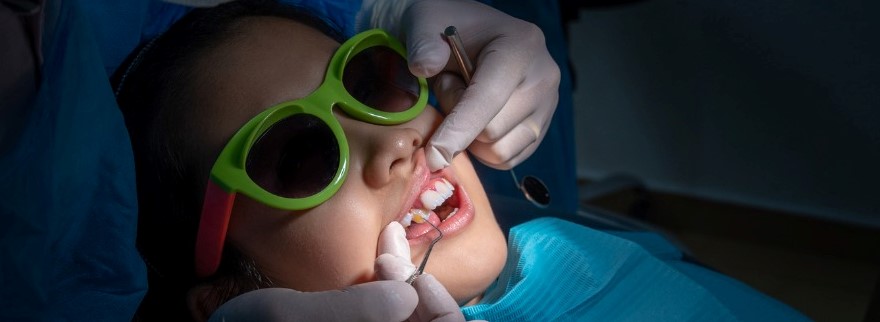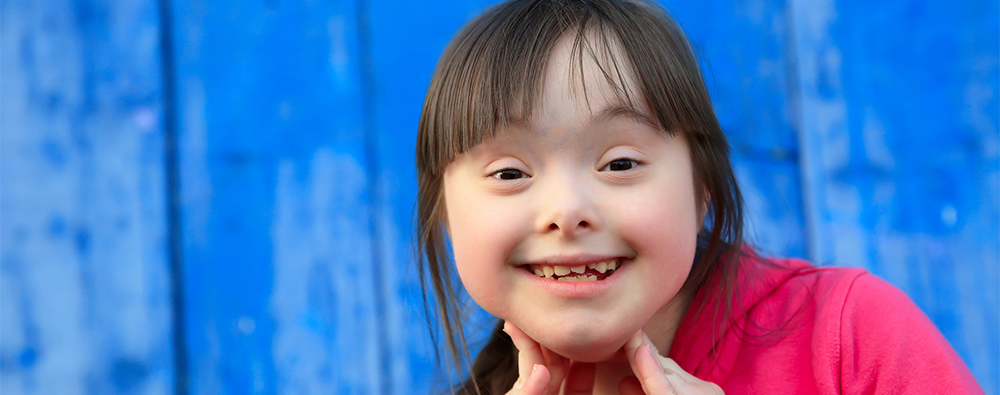As a parent, you know how hard it can be, sometimes, to know exactly what your baby or child needs. There’s so much to keep track of when it comes to the health and wellness of your children that it can seem impossible to stay on top of everything. That’s why we put together this guide for what parents should know about their children’s dental health.
This is an overview of some issues to watch out for in your children’s dental health and some strategies you can use to protect them. The most comprehensive recommendations should come from your family’s dentist, but this guide should serve as a place to start so you can go to your children’s first (or next) dentist appointment ready to make a plan.
Infant oral health
Yes, even before they start teething, a baby can still develop early oral health issues. A parent can do a lot to keep their baby’s gums clean to ensure that their primary teeth come in healthy. When their first teeth erupt, it’s important to keep them clean and free of tooth decay and gum disease.
Oral health issues for babies
Baby bottle tooth decay
Juices, pureed fruits and veggies, even breast milk contain natural sugar. As your baby’s teeth come in and are exposed to these sugars, they’re also susceptible to decay. This is referred to by a few names but is often called baby bottle tooth decay.
Tooth decay in babies is problematic because it can make eating painful and jeopardizes the overall health of your baby and their adult teeth later.
To prevent baby bottle tooth decay, try to limit your baby’s exposure to sugars. For example, instead of leaving a bottle of formula in the crib overnight, replace it with a bottle of plain water or a pacifier. The water and their saliva will help wash away oral bacteria. One popular recommendation dentists give is not to let a baby fall asleep while breastfeeding so there is less chance that milk will remain on the baby’s teeth while sleeping.
Thumb sucking
Children may suck their thumb as a calming mechanism. It can become a problem after the age of five when adult teeth begin to erupt. Teeth may come in crooked, causing potentially extensive and expensive corrective treatment later. In some cases, it can even cause irregular speech and contribute to the misalignment of a child’s top and bottom jaws.
Since sucking their thumb is a form of security for the child, a parent should avoid scolding their child for it but rather offer positive reinforcement in the times when the child is not sucking their thumb.
Caring for infant teeth and gums
Even before they sprout teeth, it’s important to keep a healthy mouth for the teeth to grow into. Cleaning your baby’s gums is as simple as wiping them with gauze or a clean, wet washcloth at bath time.
Teething
Babies usually start teething at around 6 months old. As your baby’s teeth come in, it’s important to keep them clean. Brushing softly twice a day with a children’s fluoride toothpaste and a soft-bristled toothbrush will keep your baby’s teeth healthy.
Teething can be painful and irritating to babies and toddlers, but applying pressure to the gums and new teeth tends to ease the irritation. You can find safe teething toys and rings made for your baby to mash on with their new teeth. Simply sucking on something cold like a cool, wet washcloth helps ease the pain, too.
When your baby starts teething, you’ll notice more-than-usual drooling and fussiness. That’s how you’ll know it’s time to look for baby teeth and start brushing.
Childhood oral health
Even before they have all their adult teeth, it’s important to start taking care of your child’s teeth and having them start to learn how to care for their smiles, themselves. Besides just forming good habits, children should learn to brush and floss early because cavities and gum disease can develop as soon as their mouths have teeth.
Oral health issues for young children
Oral injuries
Early injuries to the teeth and jaw in children can spell problems later if not handled properly. Even if a primary (baby) tooth is knocked loose by a fall or any kind of accident, you should take your child to the dentist right away. An injury to a baby tooth can affect the adult tooth beneath it.
Mouth guards are always a good idea if rough play or sports is involved. Even if a tooth is supposed to fall out some day, having it prematurely knocked loose or chipped is still a cause for concern.
Cavities
Cavities that form in baby (primary) teeth need to be addressed. Treatment recommendations depend on the size of the cavity and the estimated time the child will retain that tooth. Cavities can cause more problems than just a hole in the tooth but may lead to nerve damage and problems for the adult tooth later.
If your child’s siblings experience cavities or if they eat a lot of sugary food or drinks, it’s best to be vigilant about keeping your child’s mouth clean and healthy.
Ensure you instill good oral healthcare habits early on by helping your children brush their teeth until you feel confident they can do it on their own. Allow your kids to use a pea-sized dot of fluoride toothpaste and make sure they always spit it out and don’t swallow it.
Misaligned teeth
As we’ve already discussed, thumb sucking can cause an overjet and misalignment of the teeth. Genetics and other variables also play a role in the shape and position of a child’s jaws and teeth.
As all your child’s baby teeth come in, now is the time to notice misalignment, overbites, or underbites. Take your child to the dentist if you notice any of these symptoms to get a professional opinion on their severity and a course of action.
When should a child first go to the dentist?
Make your child’s first dentist appointment at the first sign of teeth, and no later than one year old. As soon as their teeth start coming in, it’s time to start having your child see a dental professional. Early dentist appointments will set a solid foundation for the healthy growth of your child’s baby and adult teeth. Plus, a dentist will be able to catch early signs of any issues to be aware of.
What happens at a child’s first dentist appointment?
Most often, a child’s first dental appointment is meant for the dentist and the child’s parents to get an overview of the baby’s overall oral health and set a plan for care, if needed. This usually includes an examination of the child’s bite, their gums, teeth, and tissues to ensure that everything is growing and developing properly.
Rarely, a dentist may request an x-ray if there is some area of concern around the child’s developing jaw. Depending on tartar and plaque on the first baby teeth, a dentist may also recommend an initial, light cleaning.
Sealants
Dental sealants are a thin, medical-grade coating brushed onto the back molars of school-aged children. The CDC reports that 80% of childhood cavities occur on these teeth and that sealants are a great way to prevent these issues.
Many schools even have sealant programs, in which mobile units will provide this service in school, especially in areas where access to oral health resources may be more difficult.
It is a popular and safe, preventative treatment recommended by the CDC and most dental professionals.
Children and fluoride
Fluoride is a natural mineral that has proven to be a safe and effective way to protect teeth throughout your entire life from gum disease and tooth decay. Most municipalities treat their drinking water with fluoride, and it is an ingredient in some of the most recommended toothpastes and mouth washes.
Studies have shown that fluoride is not harmful to children if allowed in the proper doses. Overexposure to fluoride is very rare and difficult, since toothpastes are intended for topical application only, and drinking water supplies keep the mineral at a calculated, low concentration. But children who frequently swallow their toothpaste may see white splotches known as fluorosis on their adult teeth, so monitor your child’s brushing until you’re confident they won’t swallow their toothpaste.
Questions or concerns about fluoride? Read our Q&As hereExplore related topics

Your child and dental anesthesia

Fluoride and children: FAQs

Tips for Taking Your Special Needs Child to the Dentist







